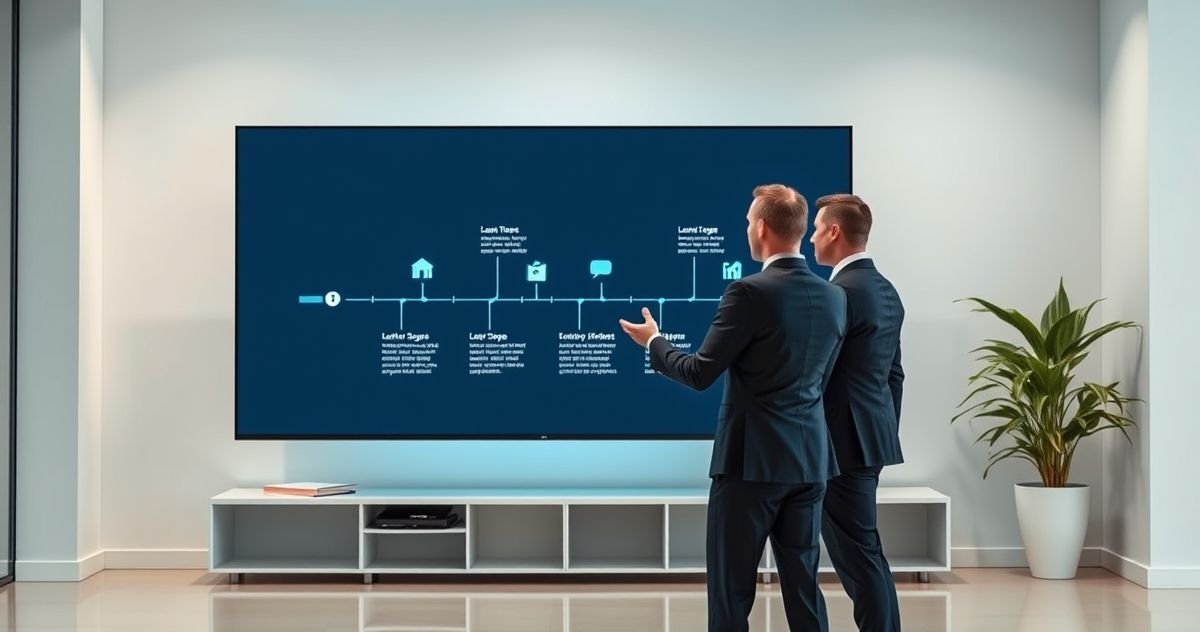The loan origination timeline maps out the entire process a loan undergoes — from the initial application to the moment funds are disbursed or the deal closes. It’s a critical roadmap that clarifies expectations for everyone involved, especially when managing major financial commitments like home purchases.
Key Stages of the Origination Timeline:
-
Application & Pre-Qualification/Pre-Approval (1-5 days):
Borrowers submit their loan applications, including financial information such as income, assets, debts, and credit history. For mortgages, pre-approval involves a more thorough check, including credit verification, and is a stronger commitment from lenders than pre-qualification. -
Processing & Document Collection (5-10 days):
A loan processor collects and verifies documents required: pay stubs, W-2s, tax returns, bank statements, credit reports, and IDs. They ensure the loan application is complete before passing it forward. -
Underwriting (7-21 days):
The underwriter assesses the risk by reviewing financials, creditworthiness, debt ratios, and collateral value (for secured loans like mortgages). This stage often takes the longest and may require additional documentation. -
Appraisal & Title Search (7-14 days, for secured loans):
Independent appraisers value the property to confirm it covers the loan amount, protecting both borrower and lender. Title searches verify clear ownership and absence of liens or claims. Title insurance is often issued to protect against future disputes. Learn more about Appraisals and Title Insurance. -
Loan Approval & Closing Disclosure (1-3 days):
Upon underwriter approval, borrowers receive the Closing Disclosure, detailing final loan terms, interest rates, monthly payments, and closing costs. The Closing Disclosure must be provided at least three business days before closing as required by law. More details at Closing Disclosure. -
Closing & Funding (1-2 days):
Borrowers sign legal documents, and funds are disbursed to the seller or borrower. The loan officially funds, finalizing the transaction.
Example Timeline Durations:
- Mortgages typically take 30 to 60 days due to their complexity.
- Personal loans may fund within days, sometimes hours.
- Small business loans can range from 2-4 weeks or longer for SBA-backed loans.
Why it Matters:
Understanding the origination timeline helps borrowers plan their finances and deadlines, while lenders ensure compliance and efficient processing. It also affects real estate agents, sellers, and third-party vendors like appraisers and title companies.
Tips to Expedite the Process:
- Prepare all financial documents before applying.
- Respond promptly to lender requests.
- Avoid major financial changes during the process.
- Monitor your credit closely.
- Select a reputable lender known for efficient processing.
Common Misconceptions:
- Pre-approval is not final approval.
- Delays often result from borrowers’ slow document submission.
- Good credit doesn’t guarantee swift approval without solid income verification.
- Backing out late can incur costs.
By knowing the stages and typical lengths in your loan process, you can better navigate the complex journey from application to funding with confidence and fewer surprises.
For further reading on related topics, visit our glossary on Mortgage Underwriting, Mortgage Loan, and Closing Disclosure.
References:
- Consumer Financial Protection Bureau, Closing Disclosure: https://www.consumerfinance.gov/consumer-tools/mortgages/closing-disclosure/
- Investopedia, Mortgage Underwriting: https://www.investopedia.com/terms/m/mortgage-underwriting.asp
- NerdWallet, How Long Does It Take to Close on a House?: https://www.nerdwallet.com/article/mortgages/how-long-does-it-take-to-close-on-a-house



